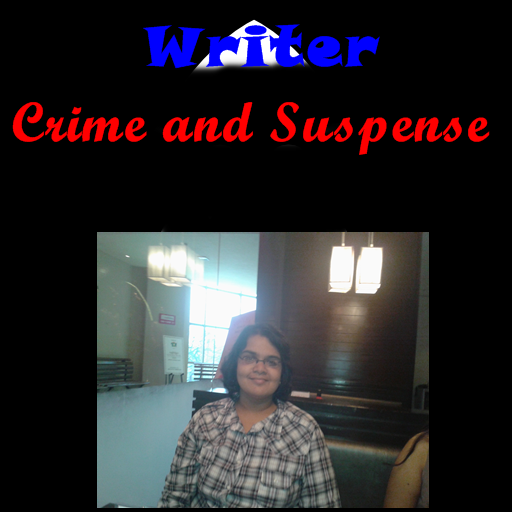Because Chuck’s finally asked a very basic question-
why we writers write- let me attempt to summarize the answer in a few bullet
points. I write because:
Ø I
believe I was born as a human sponge- destined to absorb, in heart and in mind,
the essence and the truth behind everything that was going on around me. Love,
loss, grief, evil, longing, joy, sex, art, books, births, deaths…you name it.
To drink eat, and lap up the universe around me, so that the gist of everything
resides in me, a microcosm, to be more aware of my surroundings than others.
Ø Since
I could read the alphabet, my mother put a book in my hand. Not just picture
books, but children’s story books.
Ø I’ve
faced things in life. Rejection, antagonism and lack of understanding from near
ones, ridicule for being different, for being overweight and awkward, for being
real and not a faked version of someone else, for not caring what people think
of me. I’ve been through many dark phases- so writing helps me come to terms
with that darkness and realize that I’ve found the light, finally.
Ø I
think the genres I write also define me as a writer. I write crime,
psychological suspense, horror and erotica. All four genres are inter-related
and help me explore the darkness, the negativity that underlies everything, and
how people come out of it. How everything is covered in shades of grey, and how
we must have the insight to recognize that not everything’s black and white.
Ø Writing
helps me bust the stress of everyday life. I write every day, and I write a
fairly lot. I work on two to three manuscripts at the same time. So my mind is
always busy plotting murders, intrigues and who will fall in love with whom,
who will take whom to bed, who will lecture whom on what, who will cuss whom
and who will kill whom etc…you get the drift. Writing a lot helps me put things
in perspective, and helps me take failure and success in stride.
Ø Writing
has helped me improve my memory, logistic and analytical skills. Since it helps
me get everything into perspective, writing has made me more rational, more
pragmatic and more intelligent. It has helped me greatly as a student and
researcher. I never take anything at face value, but try to look deeper to find
out the truth. As a writer, I observe people and events around me, and it helps
me understand the world better. Therefore, I believe that writers don’t look at the world- they see through it.
Ø Writing
helps me find my voice, what I stand for, what I believe in, what I despise.
That’s why no two writers are the same- a good writer writes in their own
distinctive voice and creates beautiful prose.
Ø Writing
makes me feel better about myself. I’m not wasting time over stupid social
gatherings (except book launches, write-ins and chat with close friends- those
are not a waste of time), dumbass parties, or bitching about people to other
people, wallowing in frivolity and mediocrity, or worse. I’m utilizing my time
to create something hopefully of good redeeming value, something which will
connect with other people on a profound, personal level, and perhaps make them
happy, and let them know that they’re not alone. When I sum up what I’ve done in
my life, creating something valuable and beautiful will give me an indication
of a life well lived, and well spent.
Ø Writing
gives me a great excuse to eat chocolate, savor good food and drink lots of
coffee ( I call it The Writers’ Nutrition).
Ø If
I don’t write, I will not be able to vomit the thousands of worlds,
experiences, people, and other things residing in my neurons. My experiences,
the things I observe and learn, the stories I absorb from books and which morph
into other books in my fertile imagination, the untold feelings- all of these
are constantly knocking on the inside of my head. Write us down now, they
always say. If I don’t write, the knocking grows insistent till I’m forced to
open the laptop and type down my thoughts.
Ø Writing
has helped me navigate through the dark, the negative and turn myself into a
positive, confident, outspoken, self-assured person, and made me unafraid of my
naysayers and detractors.
Ø Writing
is part of my identity. It gives meaning to my life, and helps me relate to
other writers- sentient beings who live for almost the same ideals as I do.
Ø PROUD
TO BE A WRITER.

